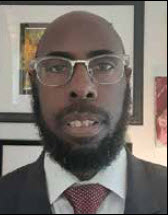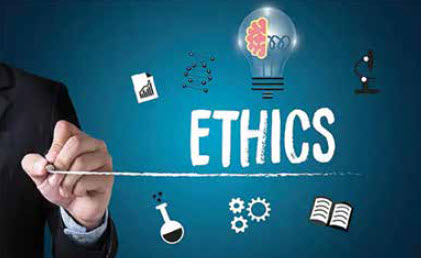 By: Eric Betts
By: Eric Betts
Ethics represents a sense of right and wrong, which is reflected both within law and outside of written codes and specifications. It is a continual study, particularly considering the perspectives of diverse groups of people. An action or behavior may well be legal and simultaneously be unethical. The key to ethics is avoiding the borderlines and edges between the illegal and morally inappropriate. Ethicists dedicate their lives to the study of such topics within this field, especially in a constantly changing world. One such ethicist is Professor Walter Fluker, who was born in 1951 in Vaiden, Mississippi. Fluker would go on to serve in the U.S. Army as a chaplain’s assistant, made several strides in academics, and completed his Ph.D. degree in social ethics at Boston University in 1988. According to historychangers.com, he would become the assistant professor of Christian ethics at Vanderbilt Divinity. Since that time, Fluker has written widely on the topic of ethics as well as lecturing internationally. In the field of ethics, Fluker argues that ethics requires that one study how decisions will impact groups, organizations, and nations as well as various perspectives of ethics outside of the stream of one’s own social context. Fluke states the reason for such study in the following statement:
Most ethical leaders tend to be identified with a particular cultural narrative, and I take narrative very seriously. Ethical leaders are leaders who remember, retell and rebuild their story. I’m from Mississippi by way of Chicago, within the context of larger narratives. So I’m never claiming that I have the whole truth, or that I’m morally superior, but I can name a place called home in terms of my own ethical reflection. The best way to understand Martin Luther King Jr., beyond all of his intellectual degrees, is to understand that he was a Southern black preacher. King identified with a Southern church tradition, but he was able to articulate more than one moral tradition in his public presentations.
Fluker contends that the study of ethics must not become monolithic. In order to avoid relying on one’s social location, one should make the effort to educate themselves by listening to the life stories of those outside of such contexts. This should be done through scientific surveys, community, and interfaith discussions. It is easy to assume that one’s view of ethics is the standard for all time and all people groups. It is true that there is commonality, such as “do unto others what you would want them to do unto you,” but how that is demonstrated on a practical level may have varying degrees of emphasis and expectations across traditions. Fluker uses U.S. President Nixon as an example of the failure to see beyond one’s own sense of moral rightness, and the context from which it springs.
People have certain moral assumptions that grow out of their particular communities of discourse and practice. Even Nixon would have claimed some kind of moral sense of self. He would claim that he was morally right. So, most leadership has that kind of claim. But the ethical dimension that I’m speaking to gives us an opportunity to engage not only our own story, which produces a moral perspective, but with the stories of others.
Within a diverse community, one must recognize that personal blind spots along with useful wisdom based on individual contexts should be considered. Fluker argues the following: I was born in Mississippi; I was raised in Illinois. That’s important. We are constantly reliving our stories. I try to understand character for American citizens within the context of the larger American drama. For African Americans you cannot ignore the racialized drama narrative. Character is there.
The stories among diverse groups must become a constant study because it becomes the foundation for civility and how we choose to live together with all of our backgrounds and sensitivities. Beyond the rules, laws, ordinances, and regulations which are enforceable by the legal system, it is the unenforceable obligations and often the invisible, unspoken rules which become the glue that holds us all together. What is considered normative within one context may be considered disrespectful and dehumanizing in another. It may not be enforceable by law, but it should be enforced by elevating the expectations and standards within a multiethnic setting of what is acceptable character and behavior.
According to Fluker, this requires an unending quest for an ideal through self-critique and through reflection upon the existing social arrangements and structures. It is always elusive, but a goal for which we strive. Additionally, he draws attention to the ways in which materialism, technology, and modernization blinds us to that sense of commonality. This makes our efforts at shared ethics of unenforceable obligations more urgent. It should be prioritized in a way not previously considered.
Flucker states that [b]ecause of global economic reality we already share a lot of space; politically these questions are going to have to be resolved. We share a common humanity. I’ve seen it more in places that are not blessed with the gifts of technology and science and modernization. People understand why it’s important to be hospitable to a stranger…it is one of those traditions that is in sore need of repair in the American ethos.
While we appreciate the gifts of science, technology, and the material “blessings” of modernization, we should also consider what we might be losing simultaneously, and study to mitigate the downsides and side effects. The changing times in which we live require that we raise our vision of expectations and obligations of how we may best live together in a way that respects and honors our common humanity. As we advance technologically and scientifically, we should seek ways to extend the borders of what we regard as normative and acceptable patterns of living together on earth. This would make the world a better place for all of us.
By: Eric Betts
Assistant Director, Curtis Coleman Center for Religious Studies and Ethics at Athens State University






